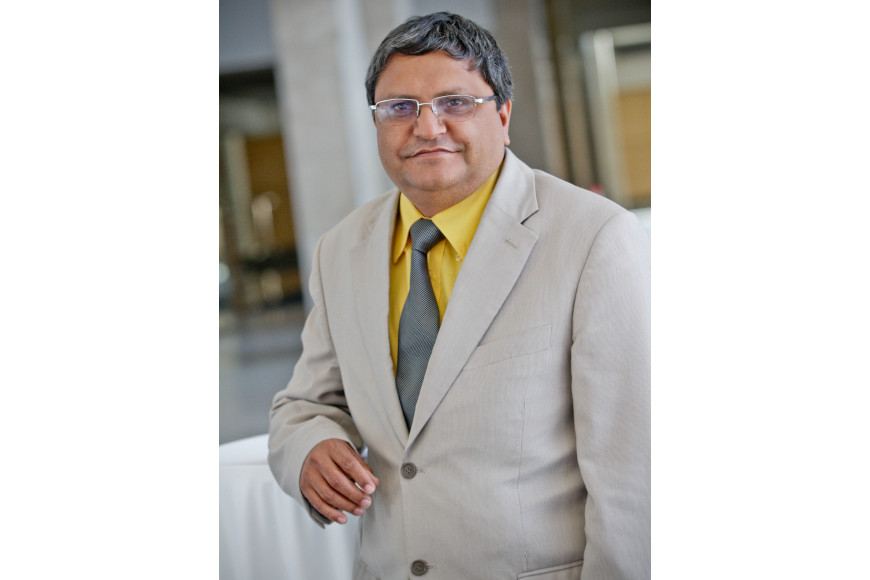The Durban University of Technology’s Professor Colin Thakur will be delivering his expert talk at the hybrid Tayarisha Lunch Box Series taking place at the Southern Centre for Inequality Studies, North Lodge Wits Management Campus on Thursday, 8 September 2022 from 12:00pm to 13:00pm.
The topic of his discussion is titled: “Digital Democracy – Is it On or Off?” Prof Thakur is an NRF-rated researcher and Research Chair in Digitalisation at the DUT. He is an e-democracy consultant and trainer focusing on automating components of the Electoral Cycle through technology such as e-voting, electronic transmission, e-referendums, biometric registration.
He was commissioned by the Independent Electoral Commission (IEC) to conduct a neutral study on the case for e-voting for South Africa. The study entitled “e-Voting: the x-National experience” was presented in 2013 to South Africa’s parliament and Chapter 9 institutions. Prof Thakur presented this study to all 53 countries at a special seminar in Nairobi called “Pressing buttons for democracy.”
Prof Thakur commented on the challenges of the voting process saying that the voter must cast their vote in secret and must not be able to prove how they voted. Furthermore, only that vote must be counted and finally the aggregated tally must be made public.
“I deliberately chose the topic: Digital Democracy: Is it On or Off? which formed part of my PhD, because I wanted to emphasise that technology impacts the entire Electoral Cycle. This cycle includes voter registration, party registration, party campaigning and monitoring, preparation and administration of the actual election, vote capturing and tallying, the transmission of results, and finally the aggregation of the results. The period between the last ballot cast and the announcement is when democracy is at its most fragile,” he said.
Prof Thakur added that every aspect of the cycle has room for automation each of which introduces sometimes unintended consequences.
“Consider the indelible ink which we proudly call the ‘mark of democracy’ which also mitigates over voting. This mark unfortunately also identifies the voter to antidemocrats,” he stressed.
He relayed that Electronic Voting Machines (EVMs) offer fast, reliable counting but arrive at a huge capital cost. Prof Thakur expressed that EVMs may be used frequently and allow for referendums.
“How do you spoil a ballot on an EVM, which is a democratic right? EVMs are black box solutions which are difficult to certify. Some folk say using EVMs is akin to outsourcing democracy. So, we continuously solve some problems while introducing new problems,” he said.
e-referendums or plebiscites is an evolving technology which enables deliberative democracy. This is where governments consult or canvass the opinion of people over non-constitutional decisions.
Prof Thakur commented that the DUT as a ‘University of Technology’ definitely needs and should be leading these types of deep, technological discussions. He is consequently in discussion with the Executive Dean of the Faculty of Management Sciences, Professor Fulufhelo Netswera; and Executive Dean of the Faculty of Accounting and Informatics, Prof Oludayo Olugbara to offer such a talk or debate to the DUT staff, students and the KwaZulu-Natal (KZN) community.
“As a rated researcher I feel obliged to ‘curve watch’ and offer pragmatic contextual advice to national countries on deploying technology in elections. I have consulted to the United Nations Development Programme (UNDP) and several African Countries. I had over 35 African countries attending my last two technology training sessions before the pandemic,” said Prof Thakur. To listen to his talk, go to link to talk
Pictured: Prof Colin Thakur.
Waheeda Peters

